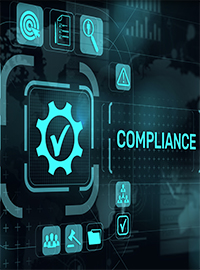| New Studies Reconfirm: Light-Touch Internet Regulation Fuels Superior U.S. Performance |
 |
|
By Timothy H. Lee
Thursday, March 03 2022 |
The sweeping term “American Exceptionalism” encompasses myriad manifestations, from unrivaled innovation to prosperity to international altruism. The primary wellspring for that exceptionalism throughout our history remains our comparative orientation toward free markets, individual liberty and limited government. In today’s increasingly information-based and interconnected world, internet service provides another salient manifestation of American Exceptionalism, one that once again demonstrates the superiority of our light-touch regulatory model vis-à-vis other advanced economies that regulate more tightly. Whereas much of the rest of the world opts for heavier regulation of internet service, we have opted for a comparatively light-touch regulatory approach. The latest occasion for celebrating that causal relationship is a new and remarkable analysis from George Ford, Ph.D. of the Phoenix Center for Advanced Legal & Economic Public Policy Studies in Washington, D.C. Dr. Ford compared broadband speeds for 4,480 cities with populations above 50,000 in 98 nations across the world, including 910 here in the U.S. Importantly, Dr. Ford only analyzed nations listed as “high income” or “upper middle income” by the Organization for Economic Cooperation and Development (OECD) to provide a fair comparison. Despite our comparatively large geography and lower population density than other advanced nations, Dr. Ford found that the U.S. performs exceptionally well: For the OECD comparison, the U.S. download speeds are much faster on average than for four other OECD nations (nearly twice as fast). Upload speeds are similar with U.S. speeds averaging 30% faster than other OECD nations. Finally, for the nations used in the FCC’s International Broadband Data Report, the U.S. has materially higher download speeds and higher upload speeds… The most consistent result is that download speeds in U.S. cities are faster than in other nations, on average, and often materially so… As for fixed broadband speeds (measuring by mobile phones using Wi-Fi networks), the U.S. performs exceptionally well relative to other nations. That result accords with a similar study by Dr. Anna-Maria Kovacs of the Georgetown Center for Business and Public Policy that is also worth quoting at length: Since the Covid-19 shelter-in-place and lockdowns began, internet traffic has surged and networks in various parts of the world have responded at different levels. Data from Ookla show that the U.S. broadband networks have performed very well, particularly when compared to those of the European Union (EU) and the OECD… [O]n average, the U.S. mean download speed during the pandemic period was 138 megabits per second (mbps) while the weighted mean download speeds of the EU, EU-4, and OECD were 102 mbps, 106 mbps, and 89 mbps, respectively. The global mean download speed was 75 mbps. In other words, the U.S. fixed-broadband download speed exceeded the global speed by 83%, and those of the EU, EU-4, and OECD by 35%, 30%, and 55% respectively. Even more importantly, Dr. Kovacs pinpoints the reasons for U.S. exceptionalism. “Three factors that may account for that,” she says, “are the high level of investment in telecommunications by U.S. carriers, the prevalence of high-speed fixed-broadband networks in the U.S., and a light-touch regulatory environment.” (Emphasis added) Here's why all of this matters. Advocates of tighter federal government regulation of internet service, including the Biden Administration and its regulatory nominees, allege that U.S. performance lags other advanced economies, inaccurately claiming that, “Internet in the United States is far slower than most other advanced nations.” On that false basis, they in turn rationalize that we must increase regulation and reimpose the disastrous “Net Neutrality” experiment, which would regulate the internet as a “public utility” under laws passed during the 1930s. But we already tried that during the Obama Administration, and it proved disastrous. From the inception of the Internet Era through subsequent Republican and Democratic administrations, the federal government practiced the light-touch regulatory approach referenced above. Despite two decades of internet growth that transformed our world, however, the Obama Administration got the bright idea that heavy-handed government regulation by the Federal Communications Commission (FCC) was suddenly critical. Accordingly, under the false slogan “Net Neutrality,” federal regulators intervened with their “solution” to a non-existent problem by reclassifying internet service as a “public utility” to begin regulating more heavily. Private investment in network infrastructure immediately declined for the first time in history outside of a recession. Whereas investment in wireless had increased from $25 billion to $33 billion, or fully 33%, between 2010 and 2013, investment fell by $5.6 billion in just the first year after the new regulations were imposed. Thus, in just its first year, such “Net Neutrality” regulation wiped out almost all of the private investment increases after 2010. Fortunately, new Trump Administration FCC Chairman Ajit Pai reversed that downward spiral in 2017 with the Restoring Internet Freedom Order, returning to the deregulatory approach that prevailed for two decades prior to 2015. Private investment rebounded, and as detailed above internet service in the U.S. excelled even through the unexpected Covid pandemic. By the way, European economists studying the issue in 2020 agreed that “Net Neutrality” stifles internet growth: [N]et neutrality regulations exert a direct negative impact on fiber investments and an indirect negative impact on fiber subscriptions. Our results, which are in line with our theoretical propositions, strongly suggest that policymakers should refrain from imposing strict net neutrality regulations. The accumulating evidence thus confirms how a light-touch regulatory approach to internet service directly leads to more exceptional performance. Despite that evidence, the Biden Administration and pro-regulation activists almost sadistically seek to maximize their control over American consumers and the internet sector by reversing our proven light touch approach. The stakes are too high for us to allow it. |
Related Articles : |
























